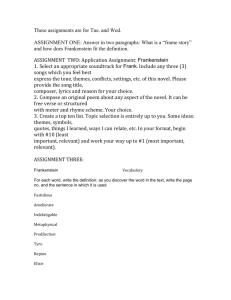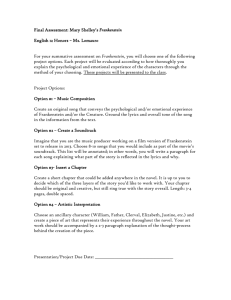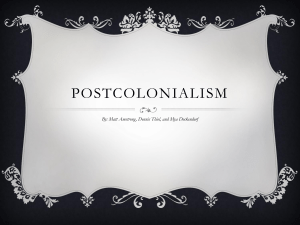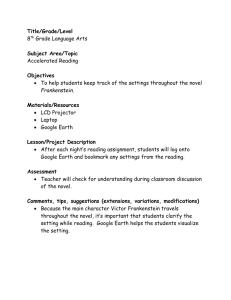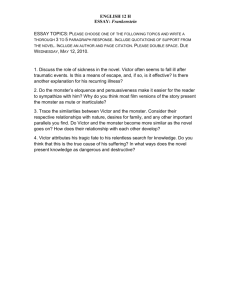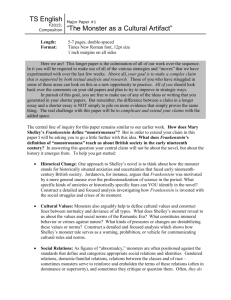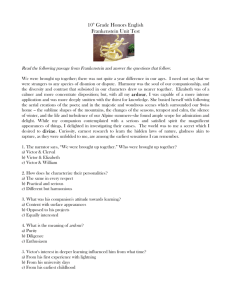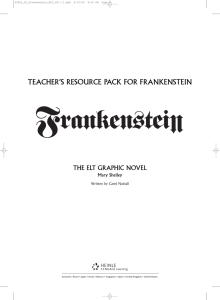Bridget Trent
advertisement
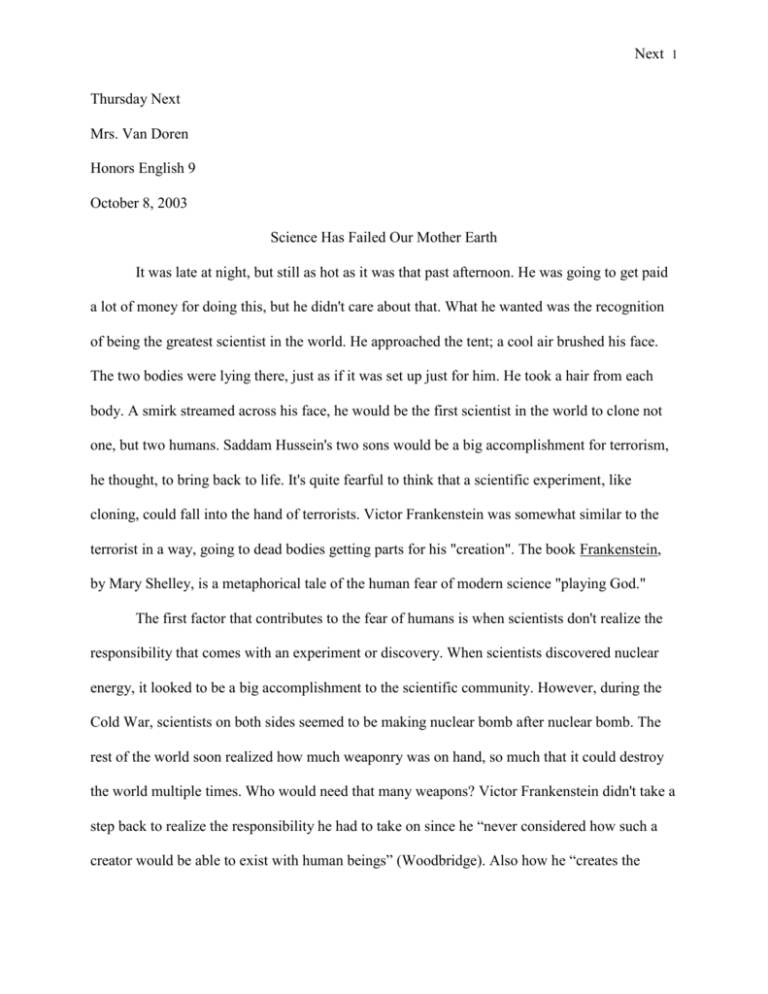
Next 1 Thursday Next Mrs. Van Doren Honors English 9 October 8, 2003 Science Has Failed Our Mother Earth It was late at night, but still as hot as it was that past afternoon. He was going to get paid a lot of money for doing this, but he didn't care about that. What he wanted was the recognition of being the greatest scientist in the world. He approached the tent; a cool air brushed his face. The two bodies were lying there, just as if it was set up just for him. He took a hair from each body. A smirk streamed across his face, he would be the first scientist in the world to clone not one, but two humans. Saddam Hussein's two sons would be a big accomplishment for terrorism, he thought, to bring back to life. It's quite fearful to think that a scientific experiment, like cloning, could fall into the hand of terrorists. Victor Frankenstein was somewhat similar to the terrorist in a way, going to dead bodies getting parts for his "creation". The book Frankenstein, by Mary Shelley, is a metaphorical tale of the human fear of modern science "playing God." The first factor that contributes to the fear of humans is when scientists don't realize the responsibility that comes with an experiment or discovery. When scientists discovered nuclear energy, it looked to be a big accomplishment to the scientific community. However, during the Cold War, scientists on both sides seemed to be making nuclear bomb after nuclear bomb. The rest of the world soon realized how much weaponry was on hand, so much that it could destroy the world multiple times. Who would need that many weapons? Victor Frankenstein didn't take a step back to realize the responsibility he had to take on since he “never considered how such a creator would be able to exist with human beings” (Woodbridge). Also how he “creates the Next 2 monster in a mood of mad pride, and will not meet his commitments to him, will not fulfill his duty” (Johnson xv). This proves that he wanted to create life just for the shear thrill of it. Victor Frankenstein creating his monster and the scientists creating nuclear bombs did not recognize the dangers of their actions until it was too late. Another fear, which is probably the biggest one, is when a scientific discovery falls into the wrong hands. People hear the scary stories of when science is used for evil. From horrific experiments that were done in Nazi concentration camps, to terrorists making suit case bombs, when science falls into these hands, the effects can be devastating. Even if Victor wasn't a fascist European or a religious militant, it was bad that he discovered how to bring dead matter to life. “Frankenstein suspects that his demon has killed his brother, but when Justine confesses, she's hanged, while he sits idly by, knowing that these were the first two victims of his "unhallowed arts"” (Tibbetts 133). How could Victor just sit there knowing an innocent person was sent to death, while all along that his creation did this. It shows that he cares more about his own self comfort, than to admit that the experiment he spent so much time on is now going around killing people. This proves that Victor is selfish and cowardly. The last thing that will be mentioned is how the actions of humans can have a big impact on the fates of others. One would wonder how this involves science, so I will explain. The real life example is if the world solved its problems with talks and debates instead of science (i.e. using chemical warfare or bombs being built for countries to nuke other countries with) the world would be a nicer place. How this relates to the story is that when “the monster appears at his bedside, causing Frankenstein to flee” (Tibbetts 132). If Frankenstein didn't run off from his creation like a coward, the monster probably wouldn't have gone off and gotten in trouble. “When the family was horrified by his appearance, he pledged to wreak havoc on humanity, in Next 3 particular on Frankenstein” (Tibbetts 132). Also if the family gave the monster a chance to show is humanly and nice side, innocent lives would have been spared. So, from these three examples, science can be very helpful to society or very destructive. Frankenstein gave the impression of human fear when it comes to science especially when "playing God". Going back to cloning, this scientific phenomenon is still in the beginning stages at this day and age. I've heard on TV that scientist can use cloning to produce more body parts, (lung, heart, and liver…), for people who needs transplants. If cloning were mainly used for this purpose, I wouldn't think many problems would arise. But, since humans can be bad, the rest of us will have to keep a close eye to how others use science. We wouldn't want the same situation like in the movie, Boys of Brazil, would we? Next 4 Works Cited Johnson, Diane. Introduction. Frankenstein. By Mary Shelley. New York: Bantam, 1981. vii-xix. Tibbetts, John C., and James M. Welsh. “Frankenstein; or, the Modern Prometheus.” The Encyclopedia of Novels into Film. 1998 ed. Woodbridge, Kim A. “The ‘Birth’ of a Monster.” Mary Shelley and Frankenstein. 28 Sept. 2001 <http://www.kimwoodbridge.com/maryshel/birth.sthml>.

